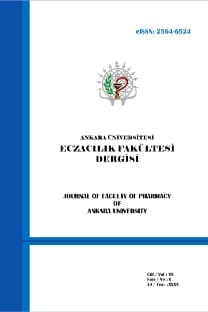Deontolojik suçların İzmir Eczacı Odası Onur Kurulu ve Türk Eczacıları Birliği Yüksek Onur Kurulu’nda yargılama süreçleri ve buna etkili faktörlerin saptanması
Bu çalışma, deontolojik suçlarla ilgili olarak İzmir Eczacı Odası (İEO) Onur Kurulu’na (OK) yansıyan dosyaların özellikleri ile OK ve Yüksek Onur Kurulu (YOK) kararları arasındaki farkların saptanması, bu farklılıklara yol açan faktörlerin belirlenmesi amacıyla planlanmıştır. Araştırma kesitsel tiptedir. Veriler, 1985-2010 yılları arasında, Onur Kurulu’na sevk edilen 312 dosyanın tamamından 30 soruluk bir veri toplama formu ile derlenmiştir. OK kararlarının yarısından fazlasının YOK tarafından bozulduğu ve iade edildiği, bunların % 33,7’sinde kararın yasa ve usule aykırı bulunması, % 32,6’sında ise suç ile ceza dengesizliği gerekçesiyle yapıldığı anlaşılmıştır. Sosyal Güvenlik Kurumu protokol hükümlerine aykırı davranışlarla ilgili dosyaların OK’unda diğer suç dosyalarına göre daha uzun süre beklediği saptanmıştır (p<0,05). Meslekten men cezası alan dosyaların, Yönetim Kurulu’nda diğer dosyalara göre daha uzun süre beklediği ve OK’ unda ise daha kısa sürede sonuçlandırıldığı, YOK’ unda ise para cezası alan dosyaların diğer dosyalara göre daha kısa sürede sonuçlandırıldığı saptanmıştır.Sonuçlar, kurulların çalışmalarının iyileştirilmesine yönelik yeni düzenlemeler yapılmasının gerekliliğini ortaya çıkarmıştır
TRIAL PROCESSES OF DEONTOLOGICAL CRIMES IN DISCIPLINE COMMITTEE OF ĐZMIR CHAMBER OF PHARMACISTS AND HIGH DISCIPLINE COMMITTEE OF TURKISH ASSOCIATION OF PHARMACISTS AND DETERMINING THE FACTORS AFFECTING THEM
This study is aimed to determine the differences between the features of the cases sent to Discipline Committee and differences of decisions made by High Discipline Committee and also to identify the features affecting these differences. The research is cross-sectional. The data is compiled from 312 case files sent to Discipline Committee between the years of 1985-2010 with the help of a data form consisting 30 questions. It was found out that more than half of the judgements were reversed by High Discipline Committee, of these 33.7 % without due process of law 32.6 % imbalance of offence and penalty were the reasons.
The cases related to the actions contrary to the actions to the protocol rules of Social Security Institution awaited longer compared to other files (p<0, 05). The cases that had the penalty of defrocking waited longer than the other cases in the board of administrators and they were concluded in a shorter time and also the cases given the pecuniary fine were concluded earlier than the others in High Discipline Committee. Results revealed that regulations intended to improve the committees’ work are necessary
